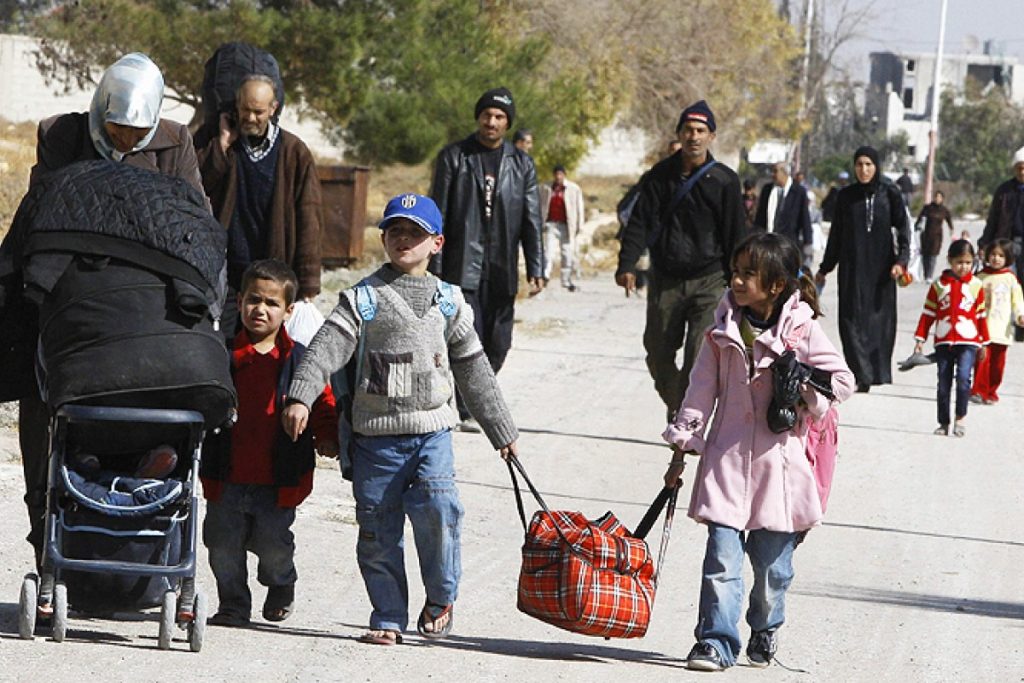
- ARAB NEWS
- 09 Jul 2025

Chris Doyle
With the Syrian economy smashed and civilians suffering severe depredations, why is there so little public debate on the sanctions on Syria? Outside a narrow circle of academics and policy wonks, nobody is discussing this or asking how the various sanctions could be modified to help those most in need.
Not only does it not appear to be even a slight concern in the lofty corridors of power in the US and the EU — the two powers that are the key implementers of sanctions on Damascus — they do not even want to entertain the discussion. This is in contrast to many other sanctions regimes in the past, such as those on Iraq, Libya and Iran. The US sanctions are far broader but the EU sanctions more relevant given the significant pre-war EU-Syria trade, largely in oil, prior to 2011.
The arguments for sanctions relief on Syria revolve around their impact on civilians. Syrian sanctions are hitting them hard, a people already suffering from the war and its attendant destruction. Some 11 million people need humanitarian assistance, around half the population.
The recent US sanctions on Iran have also affected Syrian civilians, with lengthy queues and rations for oil and mazoot (heating oil) as sanctions make it hard for Syria to import Iranian crude. Medical equipment is hard to import, not least as the US exemption licenses are so tough to obtain. Banking is practically impossible, and even Syrians outside the country find it a nightmare to open a bank account, let alone transfer money. Many are forced to use informal systems of money transfers, which only benefit the warlords and extremist groups and fall outside of any attempts to monitor flows of funds.
But let me be clear: Debating sanctions should not equal any let up in a desire to see a change in the behavior of the Syrian regime. It has committed crimes against humanity, egregious human rights abuses, used chemical weapons and bombed civilians and civilian infrastructure. Ending this should be a priority for any major player in the international community.
But have sanctions impeded the regime and deterred it from such criminal behavior? All of those crimes have taken place while sanctions have been in place over the last eight years. There is zero evidence that the regime has modified its aggressive behavior as a result of any sanctions.
It also ignores the powerful lessons from history. The Iraqi regime of Saddam Hussein benefited from sanctions, enabling it to hold the Iraqi population captive. The Israeli blockade in Gaza keeps Hamas in power. The Castro regime in Cuba survived decades of US sanctions. Very rarely do sanctions impact a regime after the initial period. The regime’s system and crony networks adapt and find workarounds to ensure their continued wealth.
So what is the policy intent of US and EU sanctions? Indeed, do they even have coherent Syria policies? Neither claim in 2019 that the aim of sanctions is to remove the Syrian regime. The “Assad must go” language died out some years ago. Even most segments of the Syrian opposition largely realize this now. If anything, the US policy on Syria is nothing less than a subset of its policy of maximum pressure on Iran, with zero concern for Syrians.
Never-ending sanctions only equal never-ending suffering for those who have already endured too much. It is time to start the debate.
Chris Doyle
The sanctions will not lead to a change of regime or regime behavior. Moreover, many parts of the Syrian regime are quite content with sanctions. Warlords and regime cronies profit hugely from sanctions and their easing could actually pose a threat to this powerbase. Sanctions also provide an easy excuse for the regime as to why the economy is not picking up.
The US government is on a Cuba trajectory in regards to Syria, veering toward a decades-long regime. Sanctions are cheap and politically acceptable. Political leaders are happy to see Syria isolated and embargoed for years even decades. If anything, sanctions are about to get tougher. The Caesar Syria Civilian Protection Act has entered the US House of Representatives. If passed, these sanctions will slaughter what is left of the Syrian economy and what remains of the middle class.
How could sanctions relief happen? Could it be part of a grand bargain? It is unlikely, but who knows given the unpredictable nature of US President Donald Trump, a man more than capable of announcing he would hold talks with Bashar Assad tomorrow.
The other option would be a phased easing of specific sanctions on certain conditions. The aim would be exclusively to ease the burden on civilians. This would be dependent on the regime agreeing to specific steps, such as safe refugee return, full chemical weapons inspections and an end to the bombing of civilian targets.
The EU could also make explicit what are the criteria for reconstruction funds to become available. Sensibly, EU leaders have not dished out huge sums because they are awaiting meaningful political reforms, but there is no clarity as to exactly how this is to be defined.
The Syrian regime would want to see some benefits for itself, ending diplomatic isolation being one. Pressure on the regime to accept a deal must come from its loyalist base who are desperate to see the economy opening up again and would not take kindly to the regime becoming an obstacle to sanctions relief.
The likelihood is that US sanctions will continue unaltered, with a faint chance the EU sanctions could change. But for those who want to help Syrian civilians now, given that the regime for the foreseeable future is not disappearing, tough questions must be asked. Never-ending sanctions only equal never-ending suffering for those who have already endured too much. It is time to start the debate.
Chris Doyle is director of the London-based Council for Arab-British Understanding. Twitter: @Doylech.